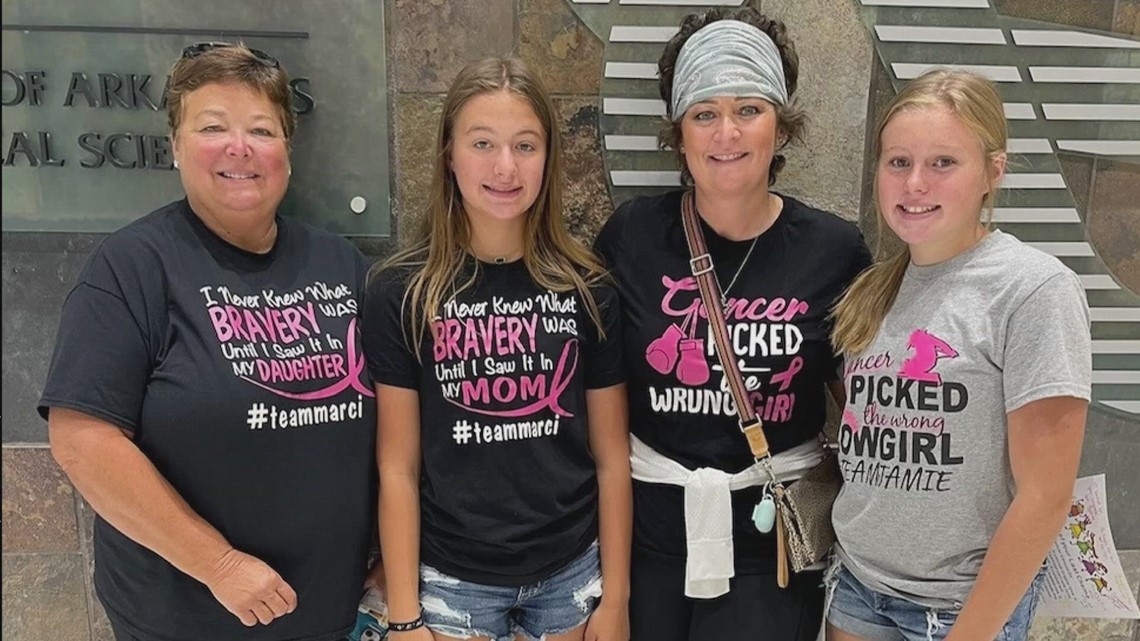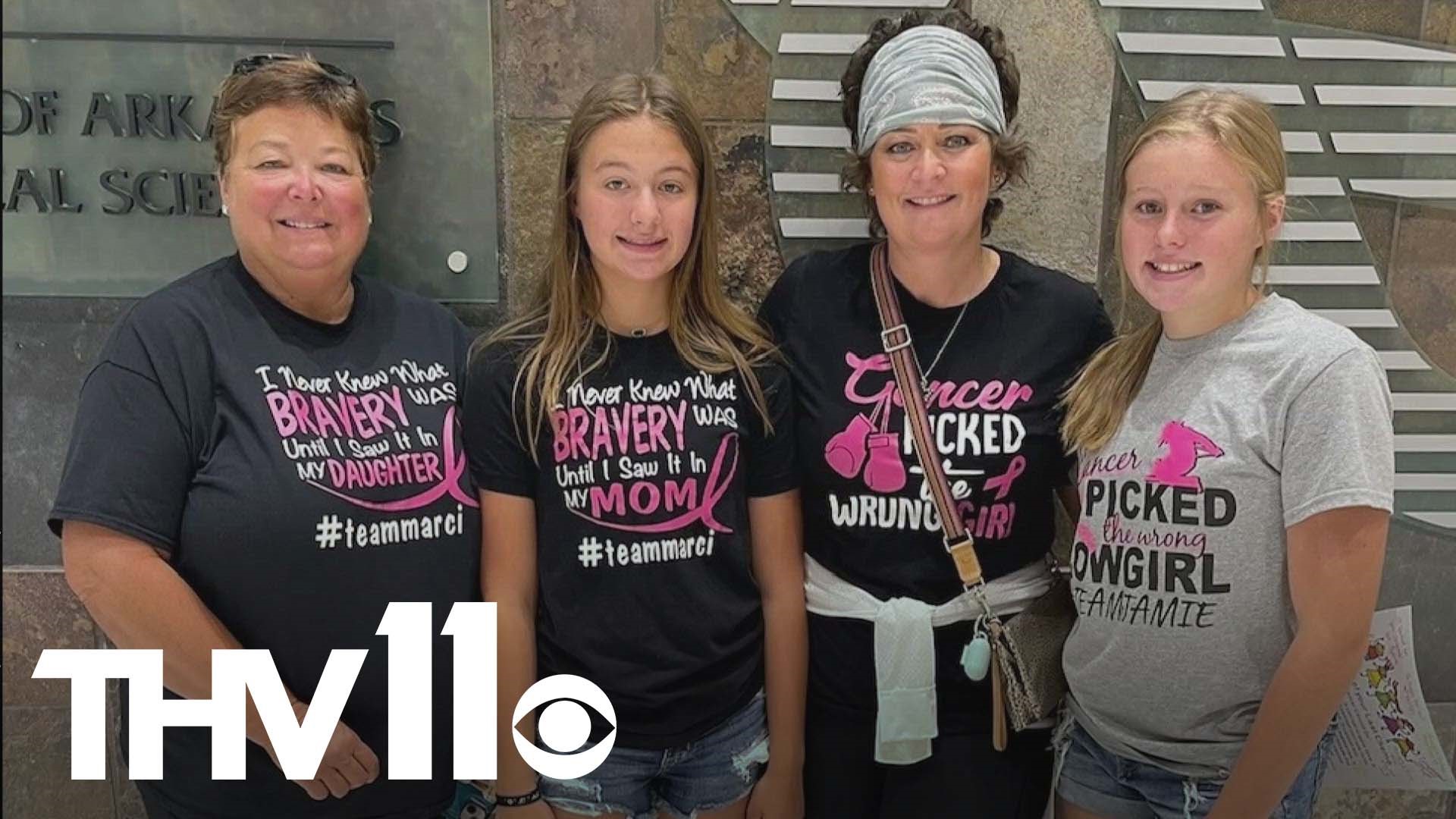LITTLE ROCK, Ark. — Marci Harrison of New Hope, Arkansas, didn’t have any particular reason to feel worried about getting her first mammogram when she turned 40 years old.
She’d never had one before, but after noticing a strange bump on one side of her left breast, she knew a mammogram would explain what it was.
Being from a smaller town, Marci made the drive to Hot Springs where she received the screening before meeting with her doctor. While giving her a manual check, she watched as his eyes grew concerned.
“He started on the left side, went to the right, and he said, 'I'm gonna go back over here to the left side.' And I looked at him and I said, 'You felt that too?' And he said 'yes'," she explained.
She was fortunate enough to be able to have a biopsy done that same day and returned for the results a few days later.
"It's just me and the doctor”, she said. “And he tells me, he said 'you do have breast cancer'. And I'm sitting here and I'm thinking, it's like you've hit a brick wall. Because you're thinking, oh, this is really happening."
On the advice of a friend, Marci saw a doctor at the UAMS Winthrop P. Rockefeller Cancer Institute. There, she learned that her cancer was a more rare form called Triple Negative, or HER-2. According to the American Cancer Society, roughly 10-15% of all breast cancers are Triple Negative.
Dr. Sindhu Malapati, an Oncologist and Hematologist at the UAMS Cancer Institute, was among the team of caregivers who treated Marci.
According to Dr. Malapati, it wasn’t that long ago when a diagnosis like Marci’s was considered very difficult.
“Many years ago, like 15 to 20 years ago, this was considered a very aggressive cancer. But with all of the developments, this is one of the kinds that have really good outcomes," she explained.
Marci faced six rounds of chemotherapy before a surgeon performed a double mastectomy. Dr. Malapati said that advancements in cancer treatments allow for a more targeted approach to cancer cells.
“We're getting more and more specific; we're getting personalized with medicine," she added. "So we're tailoring treatments to the patient, to their genetics, to the cancer they have, and not just in general."
Now, she’s taking maintenance medication to prevent hormones from allowing any cancer cells to grow— without it, her cancer cells would get worse.
Now that her treatment journey is behind her, this single mother of two teenagers is feeling great. Marci lost her hair during chemo. but has since grown it back with a beautiful, natural wave to it.
As with other cancer patients at UAMS, Marci received two Seed of Hope tokens marking the completion of her treatment; one to toss into a symbolic sculpture surrounded by a garden at the hospital, the other, to keep, or give to someone else.
She said that while no woman ever wishes to receive a breast cancer diagnosis, she believes that something good can come from something very bad, and the experience has given her a new appreciation for the life ahead of her.
"All these moments that I feel like sometimes we take for granted as parents that we get to experience with our children, it made me cherish them even more," Marci said.



